RBS chief hopes to make Ulster Bank decision by end of summer
- Published
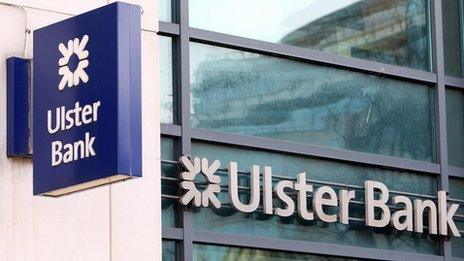
Ulster Bank is the largest bank in Northern Ireland and the third biggest in the Republic of Ireland
The chief executive of Royal Bank of Scotland (RBS) has said the bank hopes to a make a decision on the future of Ulster Bank by the end of summer.
Ross McEwen said "all options" were still being considered for what has been the worst performing part of RBS.
Ulster Bank posted a profit of £17m for the first quarter of 2014 - its first quarterly profit since 2009.
Ulster Bank is the largest bank in Northern Ireland and the third biggest in the Republic of Ireland.
The bank's future in Northern Ireland looks assured with the business becoming more closely aligned with RBS UK.
However, the precise of the shape of the bank in the Republic is more uncertain.
Mr McEwen said the aim was still to build the bank's Republic of Ireland business into a challenger to the two main Dublin-based banks.
However, he said that as it stands the bank is "just too small" be a challenger to Bank of Ireland and Allied Irish Bank (AIB).
He said reshaping it could involve "somebody else" - that refers to speculation that the bank was seeking to merge its Republic of Ireland business with a lender such as Permanent TSB.
There have also been reports that RBS has approached private equity firms to invest in such a merger.
On Friday, the Irish Independent reported that the bank could ultimately float its Republic of Ireland business on the stock market.
Ulster Bank has also shown diverging performances on the different sides of the Irish border.
The bank rarely makes this information available, but a presentation given in 2013 showed that on almost every measurement the Dublin-based part of the bank was in a worse condition.
There has been speculation that the bank could ultimately retreat from its Republic of Ireland business, but Mr McEwen reiterated that "we do want to stay and give the services to customers".
The bank said the return to profitability was a "key milestone" reflecting improving trading conditions.
The loss of almost £1bn in the final quarter of 2013 was the result of the bank having a big one-off cost relating to the creation of an internal "bad bank".
The improved performance for the first quarter of 2014 was driven by a big drop in the amount the bank had to put aside to cover bad loans, which fell from £1bn to £47m.
Ulster Bank's Chief Executive Jim Brown said the bank was focused on "sustaining the recovery of our business" and that must be "built around providing the best customer service on the island of Ireland".
Turnover for the quarter was £206m, slightly down on the same period last year.
The bank showed an improvement in its "net interest margin" - an expression of how much it earns from the basic business of lending money.
It rose to 2.36% compared to 1.85% in the same period in 2013.
However, the bank's cost-to-income ratio rose to 69% compared to 63% at the same time in 2013.
- Published25 April 2014

- Published22 June 2012
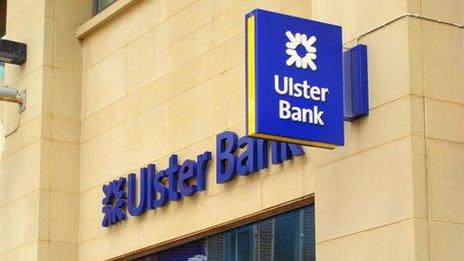
- Published25 June 2012
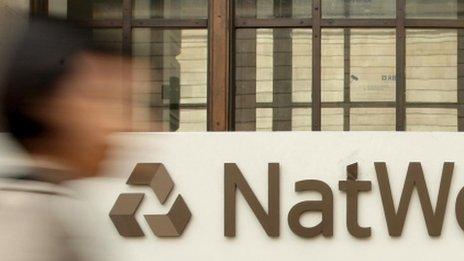
- Published28 June 2012

- Published10 December 2013
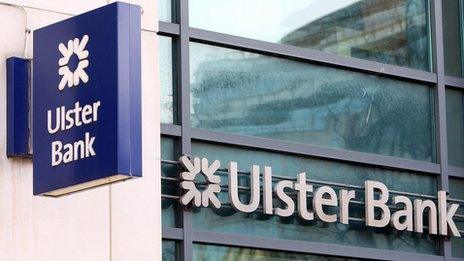
- Published28 March 2013
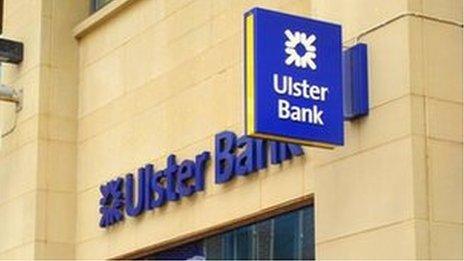
- Published7 March 2013
